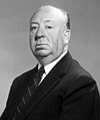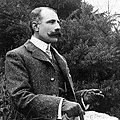Portal:England
The England portal

| |
England is a country that is part of the United Kingdom. It is located on the island of Great Britain, of which it covers approximately 62%, and over 100 smaller adjacent islands. It has land borders with Scotland to the north and Wales to the west, and is otherwise surrounded by the North Sea to the east, the English Channel to the south, the Celtic Sea to the south-west, and the Irish Sea to the west. Continental Europe lies to the south-east, and Ireland to the west. At the 2021 census, the population was 56,490,048. London is both the largest city and the capital.
The area now called England was first inhabited by modern humans during the Upper Paleolithic. It takes its name from the Angles, a Germanic tribe who settled during the 5th and 6th centuries. England became a unified state in the 10th century and has had a significant cultural and legal impact on the wider world since the Age of Discovery, which began during the 15th century. The Kingdom of England, which included Wales after 1535, ceased to be a separate sovereign state on 1 May 1707, when the Acts of Union brought into effect a political union with the Kingdom of Scotland that created the Kingdom of Great Britain.
England is the origin the English language, the English legal system (which served as the basis for the common law systems of many other countries), association football, and the Anglican branch of Christianity; its parliamentary system of government has been widely adopted by other nations. The Industrial Revolution began in 18th-century England, transforming its society into the world's first industrialised nation. England is home to the two oldest universities in the English-speaking world: the University of Oxford, founded in 1096, and the University of Cambridge, founded in 1209. Both universities are ranked among the most prestigious in the world.
England's terrain chiefly consists of low hills and plains, especially in the centre and south. Upland and mountainous terrain is mostly found in the north and west, including Dartmoor, the Lake District, the Pennines, and the Shropshire Hills. The country's capital is London, the metropolitan area of which has a population of 14.2 million as of 2021, representing the United Kingdom's largest metropolitan area. England's population of 56.3 million comprises 84% of the population of the United Kingdom, largely concentrated around London, the South East, and conurbations in the Midlands, the North West, the North East, and Yorkshire, which each developed as major industrial regions during the 19th century. (Full article...)
Edward III (13 November 1312 – 21 June 1377), also known as Edward of Windsor before his accession, was King of England from January 1327 until his death in 1377. He is noted for his military success and for restoring royal authority after the disastrous and unorthodox reign of his father, Edward II. Edward III transformed the Kingdom of England into one of the most formidable military powers in Europe. His fifty-year reign is one of the longest in English history, and saw vital developments in legislation and government, in particular the evolution of the English Parliament, as well as the ravages of the Black Death. He outlived his eldest son, Edward the Black Prince, and was succeeded by his grandson, Richard II.
Edward was crowned at age fourteen after his father was deposed by his mother, Isabella of France, and her lover, Roger Mortimer. At the age of seventeen, he led a successful coup d'état against Mortimer, the de facto ruler of the country, and began his personal reign. After a successful campaign in Scotland, he declared himself rightful heir to the French throne, starting the Hundred Years' War (1337–1453). Following some initial setbacks, this first phase of the war went exceptionally well for England, and would become known as the Edwardian War. Victories at Crécy and Poitiers led to the highly favourable Treaty of Brétigny, in which England made territorial gains, and Edward renounced his claim to the French throne. Edward's later years were marked by foreign policy failure and domestic strife, largely as a result of his increasing inactivity and poor health. (Full article...)Selected article -

British Island Airways (BIA) was the legal successor to British United Island Airways (BUIA). It commenced operations under that name in mid-1970. Ten years later it merged with Air Anglia, Air Wales and Air Westward to form Air UK, at the time the United Kingdom's biggest regional airline and its third-largest scheduled operator. The first British Island Airways had its head office at Congreve House (1970–1972) and Berkeley House (1973–1979), which are respectively located in Station Road and on the high street in Redhill, Surrey.
In 1982 British Island Airways was reconstituted by splitting off the charter operation Air UK had inherited from BIA at the time of its creation into a separate company. (Full article...)General images

The Exchequer of Pleas, or Court of Exchequer, was a court that dealt with matters of equity, a set of legal principles based on natural law and common law in England and Wales. Originally part of the curia regis, or King's Council, the Exchequer of Pleas split from the curia in the 1190s to sit as an independent central court. The Court of Chancery's reputation for tardiness and expense resulted in much of its business transferring to the Exchequer. The Exchequer and Chancery, with similar jurisdictions, drew closer together over the years until an argument was made during the 19th century that having two seemingly identical courts was unnecessary. As a result, the Exchequer lost its equity jurisdiction. With the Judicature Acts, the Exchequer was formally dissolved as a judicial body by an Order in Council on 16 December 1880.
The Exchequer's jurisdiction at various times was common law, equity or both. Initially a court of both common law and equity, it lost much of its common law jurisdiction after the formation of the Court of Common Pleas. From then on, it concerned itself with equitable matters and those common law matters that it had discretion to try, such as actions brought against Exchequer officials and actions brought by the monarch against non-paying debtors. (Full article...)Did you know?

- ... that the 1643 Westminster Assembly, which was appointed by the Parliament of England to restructure the Church of England, produced the Westminster Confession, the foundation of the Presbyterian Church?
- ... that Declaration of Sports was a 1617 declaration of James I of England listing archery and dancing as permissible on Sundays and that Puritans in Parliament had it publicly burned in 1643?
- ... that Jemmy Button was a Yaghan from Tierra del Fuego who was bought for a mother-of-pearl button in 1830 and taken on HMS Beagle to meet the King and Queen of England?
In the news

- 25 May 2024 – 2023–24 FA Cup
- Manchester United win their 13th FA Cup title after beating the defending champions, Manchester City, by a score of 2–1 in the final at Wembley Stadium in London, England. (The Guardian)
- 21 May 2024 – Singapore Airlines Flight 321
- A Singapore Airlines flight from London, England, to Singapore makes an emergency landing at Suvarnabhumi Airport in Bangkok, Thailand, after experiencing severe air turbulence over the Bay of Bengal, resulting in one death and at least 30 injuries. (BBC News)
- 4 May 2024 – 2024 London mayoral election
- Sadiq Khan wins re-election as mayor of London, England, with 43.8% of the vote, becoming the first London mayor to be elected to a third term. (BBC News)
- 30 April 2024 – 2024 Hainault sword attack
- A man attacks people with a sword after crashing a car into a house in Hainault, London, England, United Kingdom, killing a 14-year-old boy and injuring four other people, including two police officers. (BBC News) (The New York Times)
Selected featured content
Categories
Selected quotes
| “ | The rustics of England, especially those inhabiting the South hams (villages) of Devonshire, have great fun Wassailing the Orchards on Christmans Eve, New Year's and Twelfth Nigh (Boxing Day), when they drink toasts to the largest apple trees and sprinkle them with cyder (cider) carried by the beadle, the parish clerk, or some other such obsolete individual. The Devonshire people do this because they did it the year before. | ” |
Related WikiProjects
England • Bedfordshire • Brighton • Cheshire • Cornwall • Derbyshire • Dorset • Greater Manchester • Hampshire • Lincolnshire • London • Merseyside • Northamptonshire • North East England • Sheffield • Surrey. Warwickshire • West Midlands • Worcestershire • Yorkshire
Topics
Things you can do

- Please visit the English Wikipedians' notice board and help to write new England-related articles, and expand and improve existing ones.
- Visit Wikipedia:WikiProject England/Assessment, and help out by assessing unrated English articles.
- Add the Project Banner to English articles around Wikipedia.
- Check for announcements and open tasks for ways to improve English related articles.
- Help nominate and select new content for the England portal.
- Requested articles: Charterhouse Lane • Renewable energy in England • Ealing Village
- Expand: Dorothy Boyd • David Troughton
Related Portals
 |
 |
 |
 |
 |
 |
 |
 |
| East Midlands | London | North East | North West | South East | South West | West Midlands | Yorkshire and the Humber |

|

|

|

|

|
| Ireland | Northern Ireland | Scotland | United Kingdom | Wales |
Associated Wikimedia
The following Wikimedia Foundation sister projects provide more on this subject:
-
Commons
Free media repository -
Wikibooks
Free textbooks and manuals -
Wikidata
Free knowledge base -
Wikinews
Free-content news -
Wikiquote
Collection of quotations -
Wikisource
Free-content library -
Wikiversity
Free learning tools -
Wikivoyage
Free travel guide -
Wiktionary
Dictionary and thesaurus




































































![Image 66The Staffordshire Hoard is the largest hoard of Anglo-Saxon gold and silver metalwork yet found[update]. It consists of almost 4,600 items and metal fragments. (from Culture of England)](http://upload.wikimedia.org/wikipedia/commons/thumb/6/60/Staffordshire_hoard_annotated.jpg/120px-Staffordshire_hoard_annotated.jpg)
































